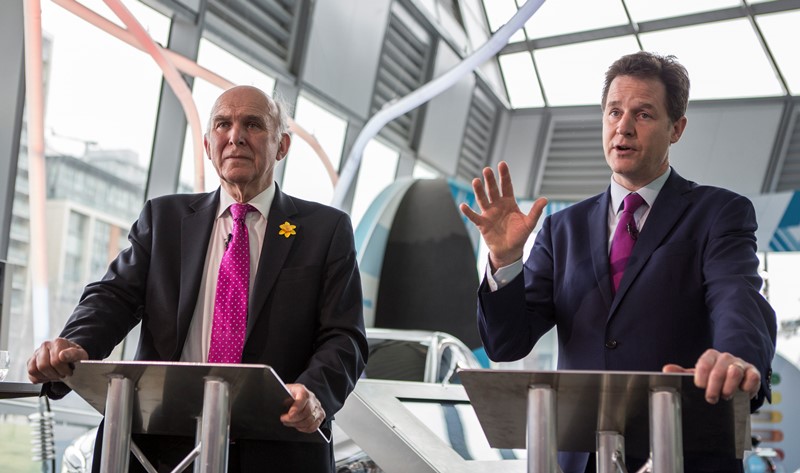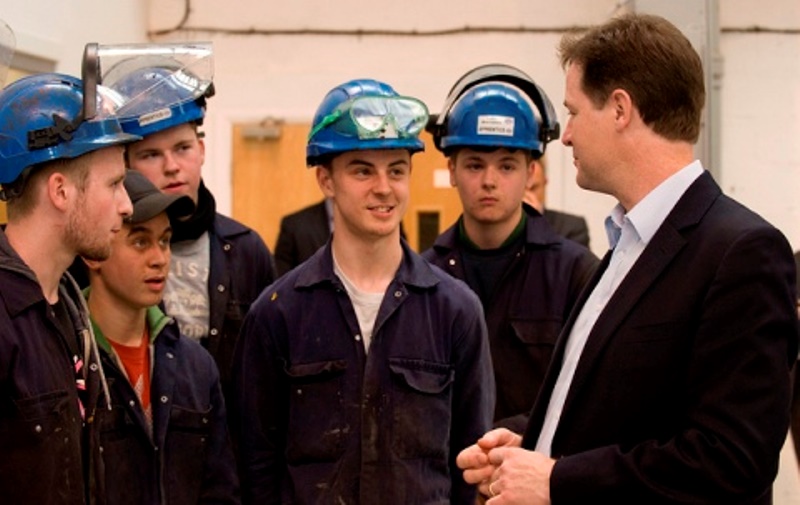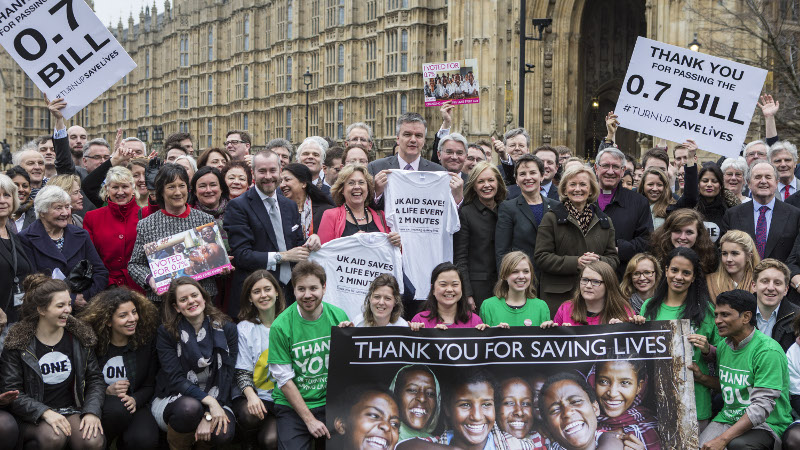Liberal Democrats have set out plans to build a stronger economy with a target of making the UK the largest economy in Europe by 2035.
This ambition will involve overtaking both France and Germany and sustaining economic growth of an average of more than one per cent higher per year than Germany until 2035.

Nick Clegg and Vince Cable set out the party’s five point plan for long-term sustainable growth that builds on the foundations of strong public finances and investment as the Liberal Democrats have set out in their fiscal rules.
Under our plans, Liberal Democrats will balance the books fairly and support business and innovation to allow all parts of our economy to thrive.
Leader of the Liberal Democrats and Deputy Prime Minister Nick Clegg said:
“The Liberal Democrats have rescued the economy and led the recovery. Now is the time to be ambitious about our future.
“We believe that by building a strong, modern, open economy we can become the powerhouse of Europe. We can grow faster than both France and Germany, overtaking them as the largest economy in Europe in 20 years’ time.
“That is hugely ambitious, but absolutely possible. To do it we need two things: to secure the recovery; and to put in place an ambitious long-term plan that harnesses and encourages the skills and dynamism of British workers and British businesses.”
Liberal Democrat Secretary of State for Business, Innovation and Skills, Vince Cable said:
“In government, the Liberal Democrats have enacted important reforms to move Britain away from a culture of short-termism to one where business and government thinks long-term beyond the political cycle.
“Our industrial strategy has laid the foundations to give business the confidence to invest over ten or twenty years by planning for the provision of skills, finance and innovation.
“The Liberal Democrats are on the side of business in creating an economy that is open to international students and the global skills pool our country needs to grow. Britain has thrived by being part of the European Union and that is why the Liberal Democrats remain committed to ensuring we continue to play out part in the world’s largest single market.
“We have started to reap the rewards, but we want to do more to move our economy from recovery to renewal across the whole of the UK over the coming decade.”
Nick and Vince have set out the five point plan as below:
Long Termism
The Lib Dems will strengthen and deepen the Industrial Strategies, to ensure vital sectors are not beholden to electoral cycles. By creating long-term partnerships with industries, with joint funding for research and development for a minimum of 10 years, we can support long-term innovation and growth.
To ensure that we only allow takeovers that are in the long-term interest of the UK, the Lib Dems will create a stronger public interest test. This means that where there has been considerable taxpayer support for businesses through the industrial strategies, such as in research and development, a public interest test will need to be passed before a takeover can be approved. This will ensure we protect taxpayer investments.
Finance for Growth
The Lib Dems in Government created the British Business Bank in 2012 with a target of unlocking £10bn of financing for viable smaller businesses. The Business Bank has already released over £2bn of this finance. We will expand the bank further to ensure more British businesses can access the finance they need to grow.
The Lib Dems in Government created the Green Investment Bank, to help support green infrastructure projects. So far the GIB has invested £1.3bn mobilising up to £4.8bn of further finance into green infrastructure. Once the national debt starts to fall we will give the GIB limited borrowing power so that it can back even more green projects.
The Lib Dems in Government created the Regional Growth Fund with £3.2bn of public money, to help good businesses expand and create jobs. So far the RGF has leveraged in £16bn of private sector investment, which will create and protect 573,000 jobs by the mid-2020s. We will extend the RGF throughout the next parliament.
Skills
The Lib Dems in Government have helped create more than two million apprentices. In the next parliament we will aim to double the number of employers with apprentices – meaning up to 4 million new apprentices. We will do this by targeting the apprenticeship grant at employers newly taking on apprentices as well as working with employers to design courses, which develop the skilled workforce they need.
The Lib Dems will build on the National Colleges programme that has recently seen the announcement of the High Speed Rail College and the Nuclear Industry College. Throughout the next parliament we will open further colleges to target skills gaps for industry. In addition we will protect the sustainable funding position of our universities.
Innovation
Science funding is absolutely essential in developing new technologies and ensuring long-term private sector growth. The Lib Dems will continue to ring-fence the £4.6bn science budget as we finish the job of balancing the books. Once the job of balancing the books is finished we will raise science spending in real terms.
We aim to double innovation spend across the economy, we will do this in part through greater public funding doubling the Government contribution in real terms by 2020-21 from £454m in 2014/15 to over £1bn. By doing so we can ensure that British companies are able to develop world beating technologies.
Openness
The British economy is stronger when it’s part of the European Union – the world’s largest borderless single market. The Liberal Democrats will hold an in/out referendum when there is next any Treaty change involving a material transfer of sovereignty from the UK to the EU. Liberal Democrats will campaign for the UK to remain in the European Union when that referendum comes.
We want managed immigration of high skilled workers who add value to our economy and for this reason we will re-introduce the Post-Study Work Visa for Masters students in STEM subjects. We will also end the counterproductive ‘cooling off’ rules for highly skilled workers that mean some currently have to leave the UK for 12 months at the end of their visa.
Higher Education is a valuable UK export worth billions to our economy. We do not believe overseas students are or should be seen as long-term migrants as without a further visa, students must return home at the end of their studies. For this reason we will remove students from the immigration calculations.






